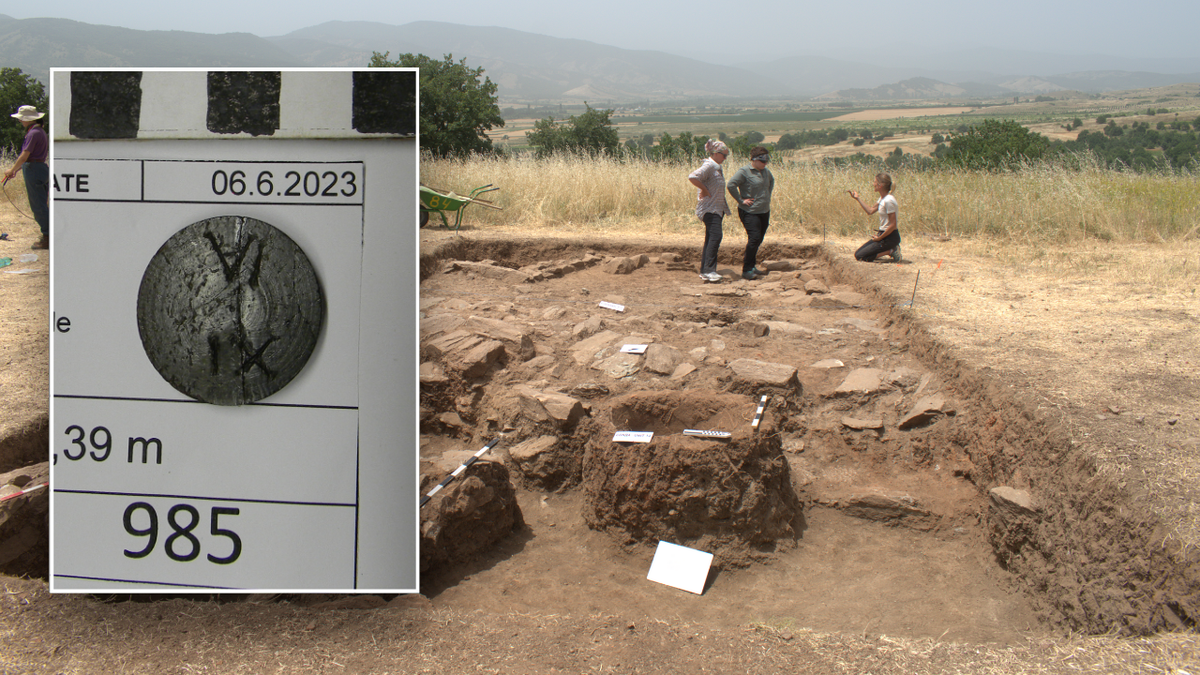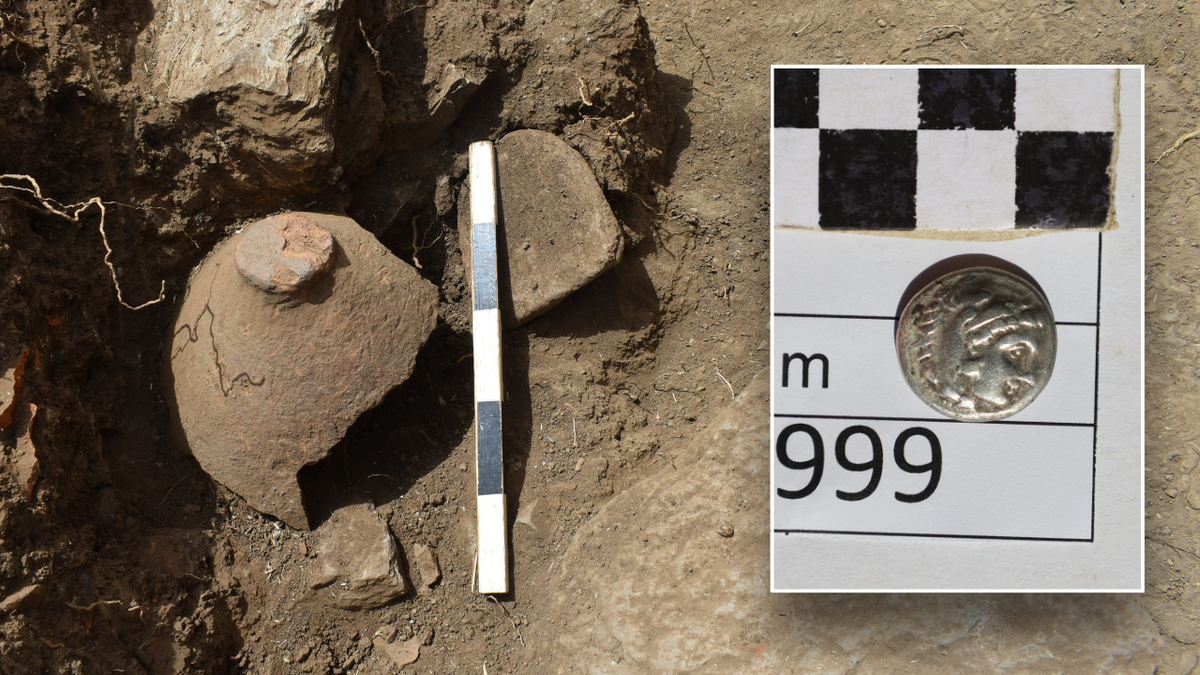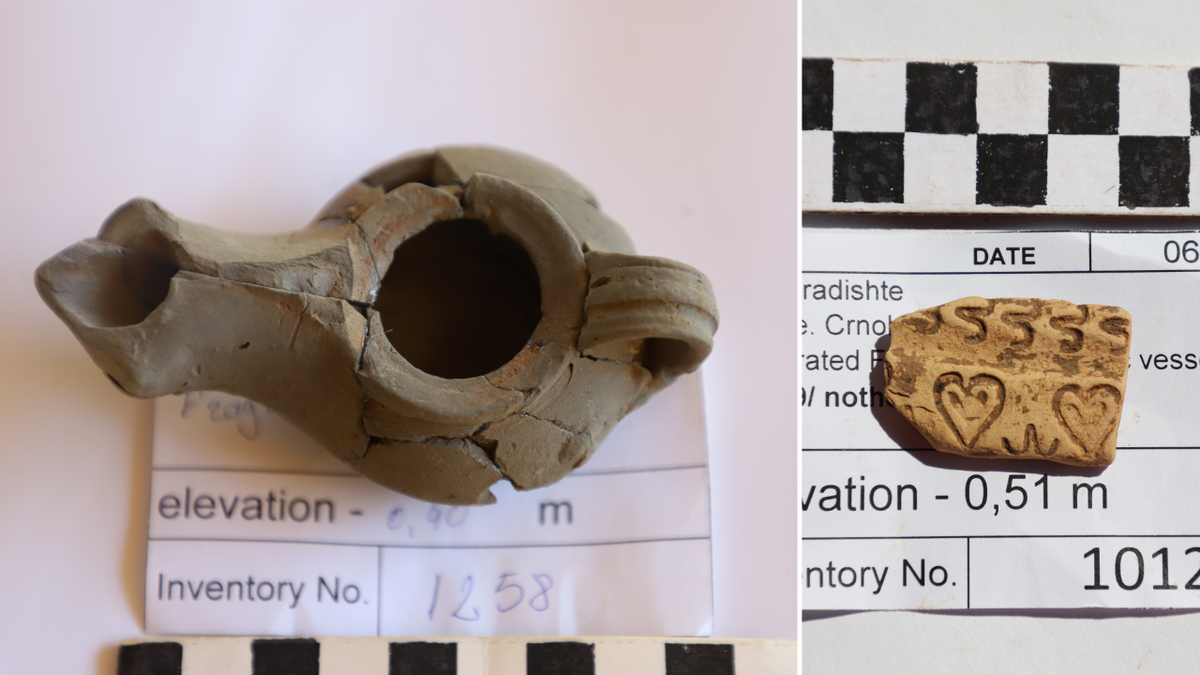Archaeologists recently unveiled the remains of a lost city thousands of years ago-and new evidence proves that it may once be the capital of a prosperous civilization.
The recent excavation was announced on April 4, the State of Polytechnic University in California. It was held in an archaeological site near the northern Macedonian village of Croonobooky; It was done with the help of experts at the Institute and Museum of Bitoller Massadonia.
Talking to Fox News Digital, Nick Angelof, a professor of anthropology from Cal Poly Humblet, said it was probably the site of the lost capital of Linkistis Kingdom, Lincolus. Kingdom conquered by Massadon’s second king Philip in 358 BC
The Secret ‘Sistine Chapel’ is equipped with frescoses in potential places
“Every hint in the Lincistice is indicating to be a city in Linkstice,” Angeloff says.
“Nothing is moving away because of being Lincolus.”
Archaeologists working in northern Massadonia can discover an ancient, long-lost capital city. “This is a unique look,” said an expert. (Cal Poly Humblet)
According to Angelph, Lincolus is the only city associated with Upper Macedonia, and has never been found before.
“[The discovery is] Very rare, “said experts.” This is a unique looking “” “
Lincolus Macedon, who settled in the 7th century BC, was the birthplace of Euridis in Massadon.
A few dozen ancient skeletons were found in the heart of Hotling City: ‘Imagine hard’
Although very few people have heard of the ancient queen, almost everyone has heard of her grandson Alexander the Great.
“This is the only suitable position we have determined that the ancient city of Lincolus, where Alexander the Great grandmother was born and raised,” he said.

A theater token was found on the site, which suggested that a theater building could be found in the future. (Cal Poly Humblet)
The archaeologist continued, “Euridis I was a very strong woman at that time in human history.”
“There is only one city that he could come and we found it.”
He also said, “Without Euridis, our Alexander’s father does not have the second Philip, or we have no Alexander.”
Experts shocked by the ancient king Arthur manuscript found tacked inside the book: ‘Survived from the century’
The information about the site is changing rapidly. Initially, historians believed that these ruins were built during the reign of Massadonia leader King Philip V, who ruled from 221 to 179
However, a coin from the reign of Alexander the Great emerged, pushed back in the fourth century BC, it seems that the site was also occupied a few hundred years ago in the Bronze Age.
On the site, archaeologists used the remote-sensing technology leader (light detection and ranging) to see the bottom of the ground. The Angelph assumed that about 10,000 people lived in the city at its top, though in the future excavations could achieve more accurate information.
“Northern Massadonia is likely to argue … is extremely significant.”
“Using technology it has become very clear that the fort is [we found] The whole city was designed to hold on, “the historian said.” And we see the entire array of infrastructure needed to hold a city inside the wall walls, especially when invading Rome. “
Click here to sign up for our lifestyle newsletter
The Angelof added, “We were able to see what was overlooked and under the ground and and it was the acropolis that sat down, which is basically on the top of a flat hill, there is enough houses and infrastructure to hold the entire city inside the wall of the fort.”

Archaeologists found a coin that depicted Alexander The Great. (Cal Poly Humblet)
The excavants discovered a textile workshop in addition to numerous artworks, including a coin that displayed a heart motif, a small ceramic comparison of Alexander the Great, Axes, Pieces of Games, A small ceramic.
One of the most curious patterns was a clay theater ticket, which Angelph said to Northern Macedonia.
“Usually, theater tickets [were] Whatever bronze or iron is made of a metal, but they are always re -used, “he said.” There has never been a place in North Massadonia with theater tickets that have not found that there is no theater. “
For further lifestyle articles, see FoxNews.com/Lifestyle
He added, “Using our leader we think we can stay the theater and it is like the Massadonian theater for all objectives and objectives, not the Roman theater.”
“This region has relatively little work and relatively slight investment.”
Archaeological experts emphasized on the historical importance of the project that his team planned to return to North Massadonia in May and June to further excavate.
“In order to inform us of our understanding of the classical about the possibility of archeology across the northern Macedonia [eras]Besides, the Roman era is also very important, “Angelph said.” This area has relatively little work and relatively slight investment in the region. “

An oil lamp was discovered on the excavation site, including ceramic patterns, including the size of the heart carved. (Cal Poly Humblet)
“So we have a chance here to extend our knowledge about the great Alexander time, [and] The time of the Roman Empire through our work in Macedonia is fluently. “
Click here to get Fox News app
Fox News Digital’s Kyle Shamidbauer contributed to this report.
Leave a Reply